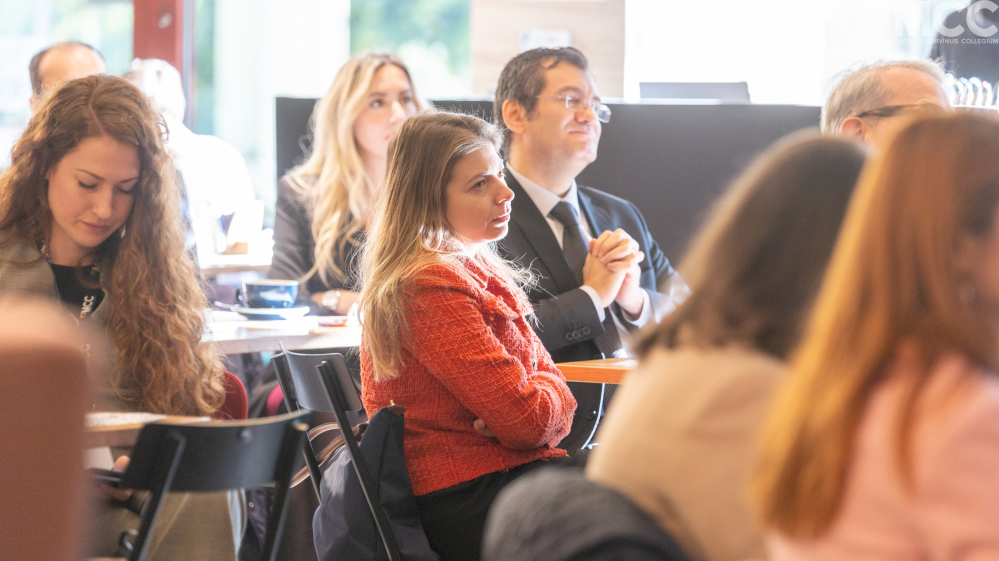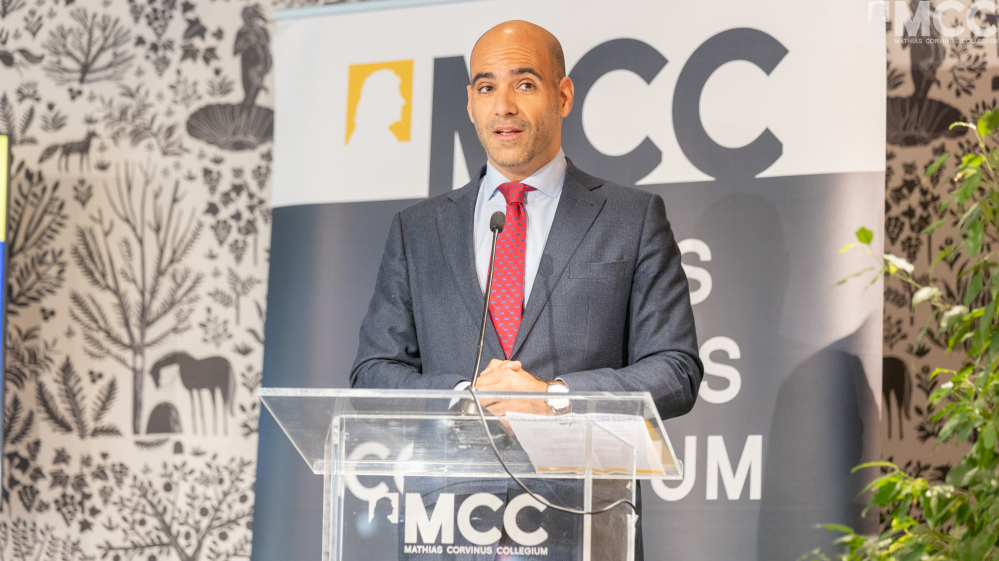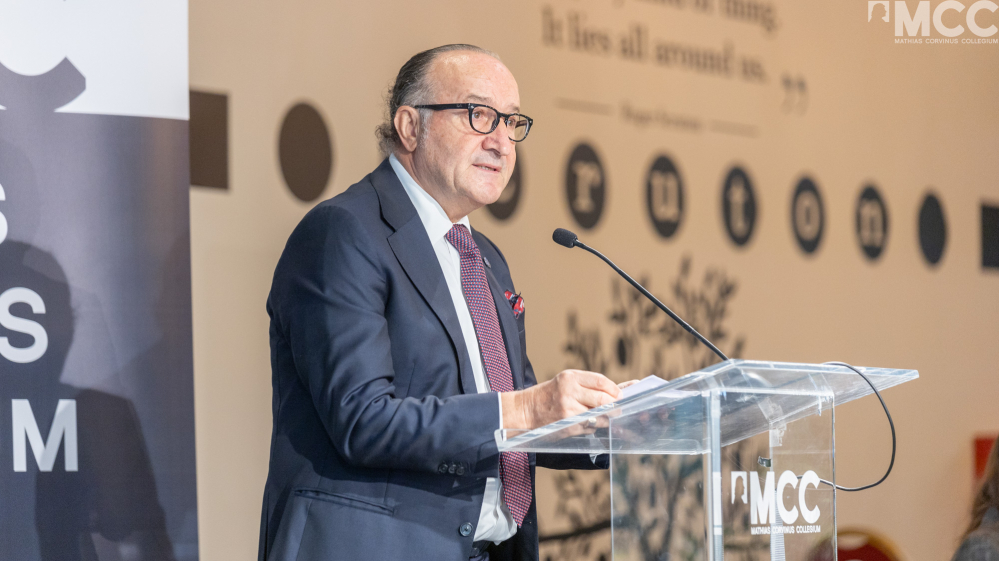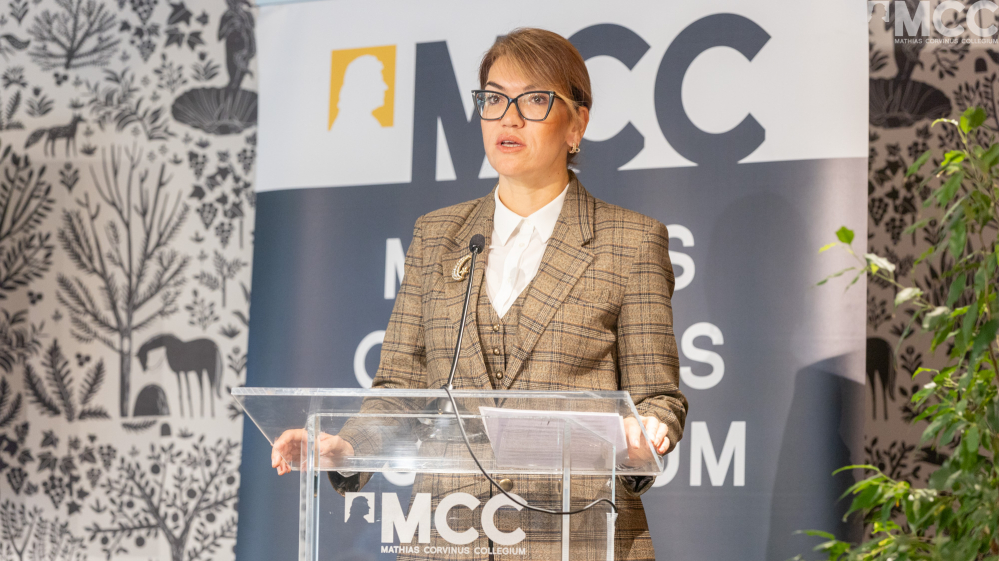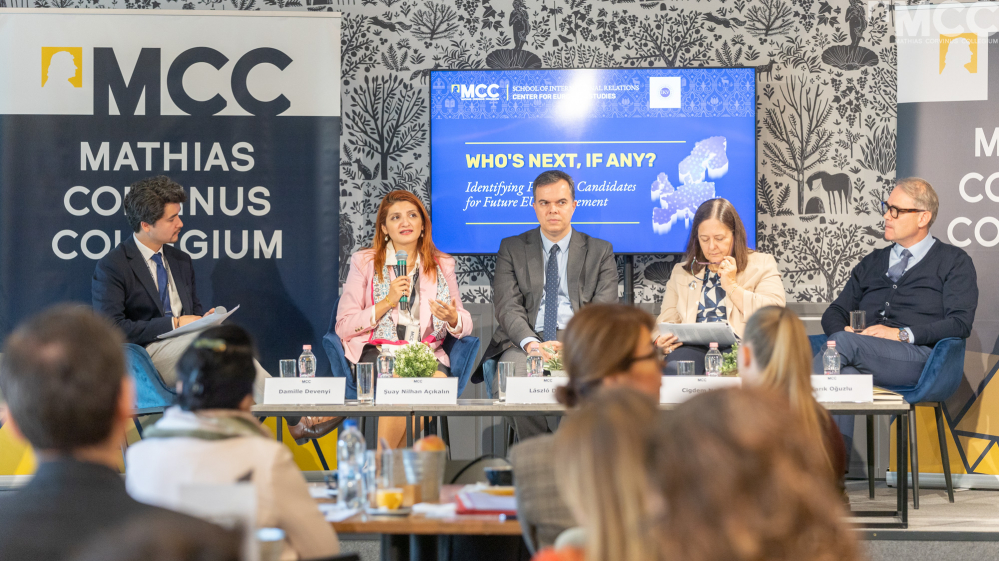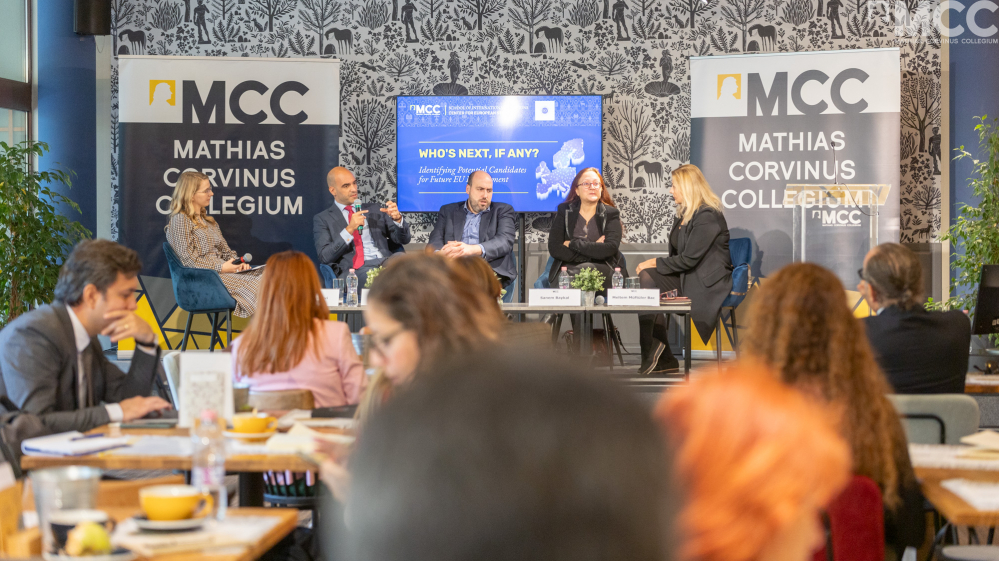Reading time: 2 minutes
The EU should adopt a multi-speed framework, allowing countries to utilize opt-outs and integrate at their own pace based on their political situations, while adhering to the principle of subsidiarity.
The Centre for European Studies at Mathias Corvinus Collegium (MCC) recently hosted an international conference titled EU Merit-Based Enlargement: Utopian, Dystopian or Simply Realistic? in cooperation with the Economic Development Foundation (İKV). Held in Budapest, the event addressed the re-emerging topic of merit-based enlargement, a crucial element in current EU policy discussions. The conference emphasized the importance of credible and balanced criteria for accession, with a special focus on Ukraine, Türkiye, and the Western Balkans.
The event was opened by the Republic of Türkiye's Ambassador to Hungary, Gülşen Karanis Ekşioğlu, who reiterated Türkiye's strategic commitment to EU membership and praised Hungary’s support for a reliable, merit-based enlargement policy. IKV President, Ayhan Zeytinoğlu, also highlighted that a merit-based approach unites candidate countries around common goals while enhancing EU security and strategic autonomy.
The conference tackled major challenges, dubbed the "three elephants in the room" — Türkiye, the Western Balkans, and Ukraine — each requiring definitive resolutions as their processes remain incomplete.
Notably, Ukraine’s potential fast-track accession versus an adherence to the standard process was a key topic of discussion, with speakers stressing the need for a balanced approach to maintain credibility. The Western Balkans, Georgia, and Moldova were also identified as test cases to see whether the highly scrutinized merit-based enlargement process is practical and effective.
Türkiye’s prolonged candidacy was another central issue, complicated by a lack of political and social will from both sides, in addition to broader concerns like EU migration and security policies, bureaucratic integration, and energy security. These complexities contribute to Türkiye’s uncertain future within the enlargement framework.
The importance of flexibility in the enlargement process was also underscored, with a particular emphasis on the idea of a multi-speed Europe. It was concluded that applying a one-size-fits-all approach is counterproductive. Instead, the EU should adopt a multi-speed framework, allowing countries to utilize opt-outs and integrate at their own pace based on their political situations, while adhering to the principle of subsidiarity.
In conclusion, the conference reinforced the need for a pragmatic, drivel-free approach to EU enlargement, focusing on addressing the unique needs of candidate countries while maintaining the Union’s core values and strategic interests.
